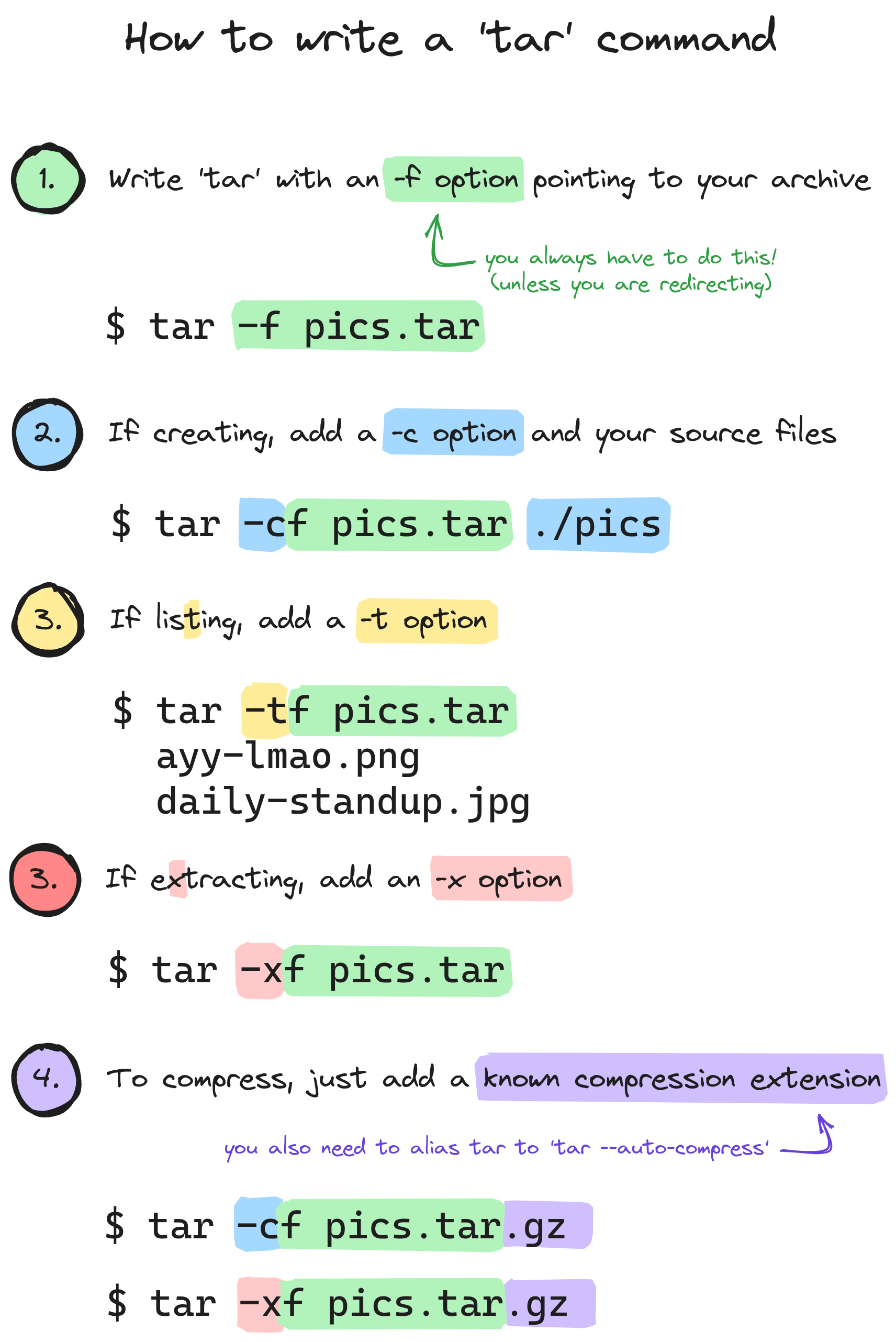I didn't know about auto-compress, thanks!
Linux
From Wikipedia, the free encyclopedia
Linux is a family of open source Unix-like operating systems based on the Linux kernel, an operating system kernel first released on September 17, 1991 by Linus Torvalds. Linux is typically packaged in a Linux distribution (or distro for short).
Distributions include the Linux kernel and supporting system software and libraries, many of which are provided by the GNU Project. Many Linux distributions use the word "Linux" in their name, but the Free Software Foundation uses the name GNU/Linux to emphasize the importance of GNU software, causing some controversy.
Rules
- Posts must be relevant to operating systems running the Linux kernel. GNU/Linux or otherwise.
- No misinformation
- No NSFW content
- No hate speech, bigotry, etc
Related Communities
Community icon by Alpár-Etele Méder, licensed under CC BY 3.0
i leave off the dash ;)
Saved this. Just like I did for tens of tar cheat sheets before. No, I won't remember it exists when I'll need to use tar. I will google it. I'll read that Stack Overflow page again. I will not enjoy it.
T_T
I'll keep using TLDR, best cli command ever.
tar, please eXtract the Vucking File!
tar -xvf tarbomb.tar.
I personally just use tldr to figure out how it's done.
My tar command is tldr tar then ctrl + c / ctrl + v
So a serious question from someone who can't remember console commands ever despite using them constantly.
Why are so many linux CLI commands set up with defaults that no one ever uses? Like if you pretty much always need -f, -v is often used, and --auto-compress is needed to recognize type by extension. Why aren't those the defaults to just using tar?
A lot of applications I find are like this too, they don't come with defaults that work or that anyone would ever use.
daily-standup.png eh... :)
Who is taking pics of the standup.. :)
I always use tldr for these things, super handy to have.
You should link TealDeer, which is the same but it's compiled in rust instead of node so it takes less memory, also, the name is cooler :)
You are absolutely right, this is way better. Thanks!
I just use atool (archive tool) instead. It works the same for any common compression format (tar, gzip, zip, 7zip, rar, etc) and comes with handy aliases like apack and aunpack obsoleting the need to memorize options.
I've written a CLI tool in Rust as a front end to tar with gzip called Targez.
It can definitely just be done with an alias instead, but you can give it a try if you prefer something installable.
That looks really cool. And finally a guide that knows -z is not necessary all the time.
I just have pack and extract functions in my shell RC files that look at file extensions and use the proper tool with proper arguments.
Wrote them 10 years ago and they've worked flawlessly ever since!
Brilliant! As an apple engineer, I think I will do the same thing with image previews in iMessage! What can go wrong?
Or -I 'compress-command' -cf ... if not supported.
